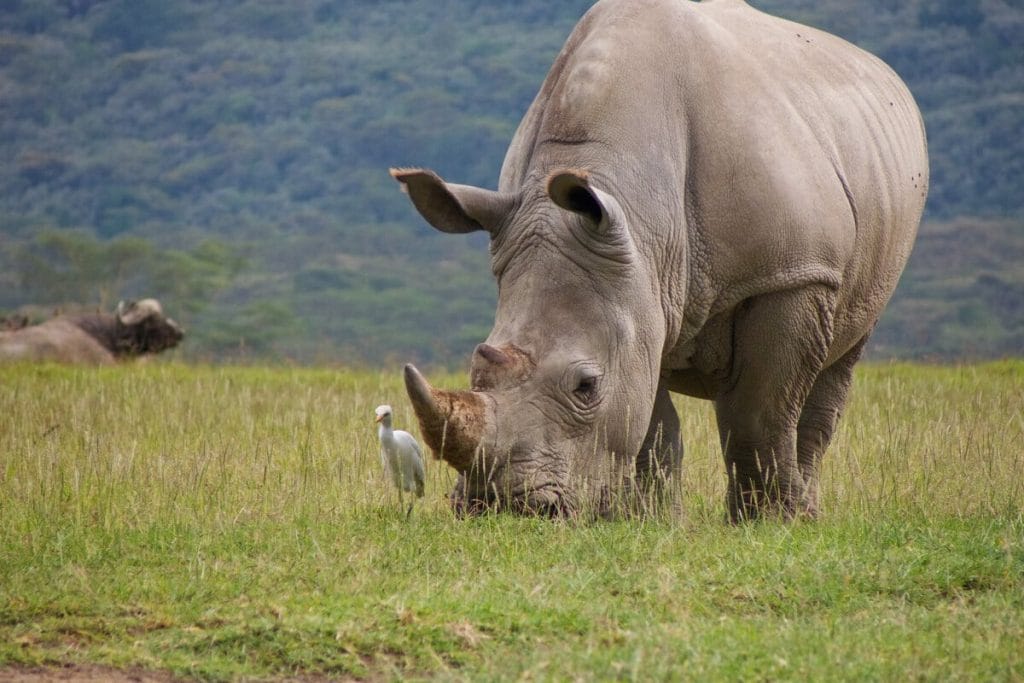In a landmark conservation initiative, Rwanda is preparing to welcome 70 southern white rhinos from South Africa, marking the country’s most ambitious wildlife relocation to date. The rhinos are expected to arrive later this month at Akagera National Park following a transcontinental journey of roughly 3,400 kilometers (2,100 miles).
This large-scale transfer is part of Rwanda’s ongoing efforts to strengthen its conservation legacy and bolster its standing as a leading safari destination. Akagera, situated in eastern Rwanda, has undergone extensive ecological restoration over the past decade, including the reintroduction of lions in 2015 and black rhinos in 2017, after years of absence due to conflict and poaching.
In a statement issued Thursday, Akagera National Park called the rhino relocation a “key milestone” in the protection of endangered species, highlighting the collaborative work between Rwanda, South Africa, and conservation partners. “This event marks a key milestone in rhino conservation and showcases our collective efforts to protect and sustainably manage Akagera National Park,” the statement noted.
White rhinos once roamed widely across sub-Saharan Africa, but their numbers plummeted due to hunting during the colonial era and a more recent wave of poaching driven by demand for rhino horn. Though the species has made a gradual recovery, it remains under threat.
According to the International Rhino Foundation (IRF), poaching across Africa rose by 4 percent between 2022 and 2023. A total of 586 rhinos were poached last year, reflecting the ongoing challenges in curbing the illegal wildlife trade.
The southern white rhino—one of two subspecies—is currently listed as “near threatened” by the International Union for Conservation of Nature (IUCN), with an estimated 17,000 individuals remaining. While this number represents progress from historical lows, conservationists warn that continued vigilance and expanded habitats are essential for the species’ long-term survival.
The situation is far more dire for the northern white rhino, which is functionally extinct. Only two females remain alive, and without any surviving males, natural reproduction is impossible. Scientists are now employing advanced reproductive technologies in a last-ditch effort to save the subspecies. Eggs from the younger female, Fatu, are being fertilized with frozen sperm from deceased males to create embryos, which will be implanted into surrogate southern white rhinos in hopes of reviving the population.
Rwanda has been actively involved in rhino conservation in recent years. In 2021, the country successfully relocated 30 white rhinos to Akagera, establishing a foundation for a new population. The upcoming arrival of 70 more rhinos is expected to enhance genetic diversity and strengthen the park’s potential as a breeding stronghold.
Despite persistent threats, white rhino populations in South Africa have shown signs of stabilization, thanks to intensified anti-poaching measures and conservation efforts. The translocation to Rwanda aims to reduce the species’ vulnerability by spreading the population across more secure habitats.
With this latest effort, Rwanda is positioning itself as a regional leader in conservation, contributing meaningfully to global strategies to protect endangered species. If successful, Akagera National Park could become one of Africa’s premier sanctuaries for white rhinos, securing their future for generations to come.



